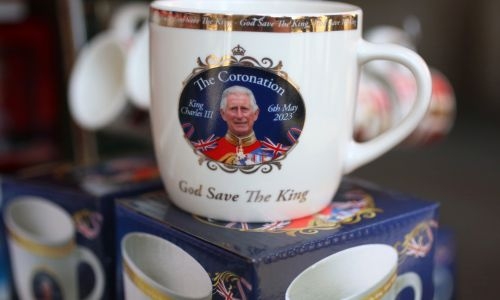Investments, inheritance leave Charles III sitting on a fortune
AFP | London
The Daily Tribune – www.newsofbahrain.com
Through inheritance, royal estates and shrewd investing while a prince, Charles III will be crowned on May 6 with a considerable fortune to his name.
Queen Elizabeth II bequeathed her son an estimated £360 million ($448 million) upon her death in September last year, boosting Charles's fortune to £600 million, according to an estimate by The Times.
The former prince of Wales built up his coffers by an ambitious investment programme following his £17 million divorce from wife Princess Diana in 1996, according to a royal aide quoted by the newspaper.
When his mother became queen in 1952, Charles also received an income from the Duchy of Cornwall, an estate established in the 14th century to give the heir to the throne apparent financial independence.
For Charles, the duchy "encompasses everything he is passionate about", his second wife Camilla told an ITV documentary aired in 2019.
In addition to 260 farms, the duchy, which has now passed to his heir Prince William, owns 52,450 hectares (nearly 130,000 acres) of land and leases £345 million of commercial property.
Charles even created a community, Poundbury, on duchy land close to Dorchester on England's south coast, where he put his architectural ideas into action.
Under his leadership, the duchy amassed assets worth more than a billion pounds, generating the then heir an income of around £23 million per year, an increase of more than 40 percent over 15 years.
- Billionaire king? -
Because of a centuries-old tradition, confirmed by a 1993 clause agreed by the then prime minister John Major, monarchs do not have to pay any tax on assets left by their predecessor, to guard against the royal estate being broken up.
The monarch's will is not made public in the UK, meaning the content of Queen Elizabeth II's will remains private.
We do, however, know that Balmoral Castle in northeast Scotland, where the royal family spends its summers and where the queen died last September, and the Sandringham estate in eastern England were left to Charles.
Both are privately owned.
By contrast, Buckingham Palace in central London and Windsor Castle, west of the capital, belong to the state.
Another historical symbol of the British monarchy, the Crown Jewels, are also the property of the nation and are therefore excluded from the evaluation of the royal fortune.
They are estimated to be worth several billion pounds.
As sovereign, Charles receives the annual "sovereign grant" -- an endowment of one quarter of the profits on the income generated by the Crown Estate, a vast collection of lands and holdings.
The rest goes to the Treasury.
The sovereign grant hit £86.3 million in 2021-22.
A final fund completes the royal fortune: the Duchy of Lancaster, which is controlled by the sovereign and which generated £24 million for the queen in 2022.
When it comes to estimating the totality of the Crown Estate, "I don't think anyone knows what it is", Geoff Kertesz, a trust and probate lawyer at law firm Stewarts in London, told AFP.
In a series of articles titled "The Cost of the Crown", The Guardian newspaper attempted to put a figure on it.
It included the Duchy of Lancaster, which is legally defined as state-controlled but whose entire profits accrue to the monarch, and luxury vehicles, technically owned by the state but exclusively used by the royal family, as well as works of art and jewellery.
Taken all together, it estimates Charles' fortune at £1.8 billion.
Related Posts

